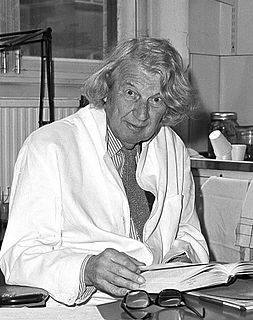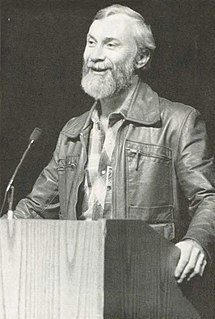A Quote by John Zachary Young
What would be the use of a neuroscience that cannot tell us anything about love?
Related Quotes
The first thing I became interested in in terms of 'Brain Storm' was neuroscience, and that is like saying you're interested in the universe. So ultimately I knew if I was going to handle this in a fictional format, I would have to take a subsection of neuroscience, and that turned out to be the use of neuroscience in criminal courts.
The time has come to tell the truth. Again. There is no love without justice. Men and women who cannot be just deny themselves and everyone they choose to be intimate with the freedom to know mutual love. If we remain unable to imagine a world where love can be recognized as a unifying principle that can lead us to seek and use power wisely, then we will remain wedded to a culture of domination that requires us to choose power over love.
I've been writing all these books that have been largely autobiographical and yet, really, they don't tell you anything about me. I just use my life story as a kind of device on which to hang comic observations. It's not my interest or instinct to tell the world anything pertinent about myself or my family.
I studied neuroscience at the cellular level, so I was looking at learning and memory in the visual cortex of rats. Neuroscience mainly exposed me to a way of thinking - about experimentation, about what you believe to be true and how you could prove it - and how to approach things in a methodical manner.
The only thing that's real in any universe [is] that brilliant fire of Love that burns to the exclusion of everything else. As we recognize the presence of Love, we break through the wall of grief that would try to convince us that the dear soul with whom we have learned and loved so much no longer exists, or that she or he cannot speak with us. There is no wall that Love cannot vaporize. We may believe in death, Love doesn't.
I watched the gorilla's eyes again, wise and knowing eyes, and wondered about this business of trying to teach apes language. Our language. Why? There are many members of our own species who live in and with the forest and know it and understand it. We don't listen to them. What is there to suggest we would listen to anything an ape could tell us? Or that it would be able to tell us of its life in a language that hasn't been born of that life? I thought, maybe it is not that they have yet to gain a language, it is that we have lost one.
Love without truth is sentimentality; it supports and affirms us but keeps us in denial about our flaws. Truth without love is harshness; it gives us information but in such a way that we cannot really hear it. God's saving love in Christ, however, is marked by both radical truthfulness about who we are and yet also radical, unconditional commitment to us. The merciful commitment strengthens us to see the truth about ourselves and repent. The conviction and repentance moves us to cling to and rest in God's mercy and grace.
Chris would use the spiritual aspect to try to motivate us. "He'd tell us to think about all the evil in the world, all the hatred, and imagine ourselves running against the forces of darkness, the evil wall that was trying to keep us from running our best. He believed that doing well was all mental, a simple matter of harnessing whatever energy was available.































